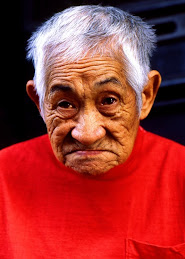As far as treating war like a religion, Iago shows in-depth knowledge of battle and rankings, but again lacks commitment to it. Form the beginning, Iago undermines the workings of their navy. He sets fire to the traditions of loyalty and honor and informs us of his ideas regarding Othello as the leader of their war. He says, "We cannot all be masters, nor all masters connot be truly follow'd. . . . Others there are who . . . keep yet their hearts attending on themselves, and, throwing but shows of service on their lords, . . . do themselves homage . . . and such a one do I profess myself."
We know Iago considers himself intellectually above Othello, but envies his morals. We know Iago torches these morals toward the end of the play. We know that Iago enjoys playing with the other characters' minds during his battle. But Iago doesn't seem to view his war as a game or a religion. The moral pyre Iago builds holds great importance to Iago, but lacks the emotional depth normally shown toward a religion. Iago acts with diligence; he is more careful than he would be if playing a game. Especially toward the end, there is nothing game-like about his attitude. His future and reputation hinge on whether or not his plan works.

No comments:
Post a Comment